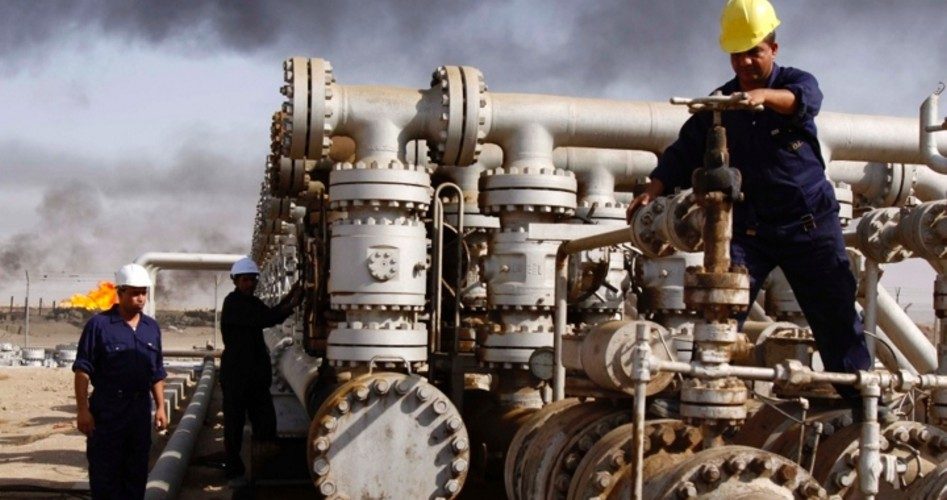
In Iraq the culture of dependency is so great that the drop in the price of oil threatens the country’s very existence. With every Iraqi dependent upon the government for essentials like sugar, tea, rice and cooking oil, and the government dependent upon oil for more than 90 percent of its budget, the existential threat is real.
In January 2015 the government, headed up by President Fuad Masum and Prime Minister Haider al-Abadi, passed a budget that cut 16 percent from spending the year before. After assuming that oil would sell for $56 a barrel and that it would export 3.3 million barrels of it every day, it was still facing a deficit of almost 10 percent of the country’s gross domestic product.
Other measures were employed: introducing a sales tax on airline tickets, vehicle sales, alcohol, and cigarettes. But oil prices dropped down into the $40s, and the outdated and war-torn oil delivery system was only able to export an estimated two million bpd. So government payrolls were cut.
As those cuts began to bite — some government workers and fighters battling ISIS (which controls one-third of the country) hadn’t been paid in months — Iraqis took to the streets.
At first the complaints were about electricity outages, especially annoying during the summer. This summer the protests are likely to be about the government itself.
To stave off bankruptcy Iraq began heart-to-heart conversations with Citigroup, Deutsche Bank, and JPMorgan for some short-term loans to cover the shortfall. In addition, the government is entreating the IMF to provide it with loans as well. And it is planning on selling some bonds backed by oil revenues.
Further cuts to government salary checks would likely tip the country into irreversible revolution. Salman Najam, an administrator at Kirkuk University was blunt:
Cutting the salaries [further] would represent the full destruction of the Iraqi people. We cannot accept cutting off our salaries because the salaries are the main source of our living, and we do not have another alternative.
The existential warning was repeated by Ahmed al-Rubai, a local politician in Diyala Province:
What we are afraid of in this economic crisis is the inability of the government to pay salaries for millions of employees because this might lead to a social earthquake with dangerous results.
With unemployment at 25 percent, and 40 percent of those with jobs working for the government, the real issue is not dependency on oil, but on a government that is dependent on oil. Mudher Mohammed Salih, a financial advisor to Iraq’s prime minister, blamed the culture: “It’s the culture in Iraq. Everyone is looking for a free lunch.”
The one permanent seemingly eternal part of the budget that won’t be cut is funding for the war against ISIS. Said Salih: “The priority is war. It’s a matter of our existence.”
Iraq’s existence may instead be determined by the deadly combination of a people dependent upon a government that in turn is dependent upon oil.
A graduate of an Ivy League school and a former investment advisor, Bob is a regular contributor to The New American magazine and blogs frequently at LightFromTheRight.com, primarily on economics and politics. He can be reached at [email protected].



